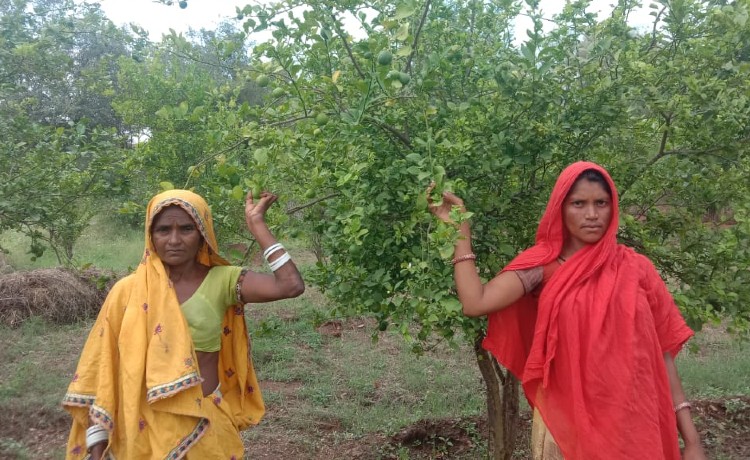An independent impact measurement study initiated by Ambuja Foundation’s research team in 2021, highlighted that the land under Ambuja Foundation’s Wadi project in the tribal block of Bali, in the Pali district of Rajasthan, has doubled income for farmers, in comparison to the land area of other seasonal crops.
‘Wadi’ means ‘orchard’ and is a horticulture-based farming system harnessed primarily in rain-fed tribal areas. With people’s participation being one of the most important ingredients of the project, Ambuja Foundation was selected by NABARD to implement the project by increasing the agricultural income for the tribal population located in the poorest block. It also acted as the ‘anchor’ of the project and was responsible for providing a supply of inputs, marketing crops, and extending financial support through linkages among other things.

Kickstarted in 2012, Ambuja Foundation used an Integrated Rural Development Approach for the development of villages in Bali and worked on other aspects including improving water resources and capacity building of communities through SHGs and FPOs. Ambuja Foundation’s ‘Wadi’ program also focused on empowering women through community participation, initiatives for micro-financing as well as processing and marketing of products.
Ambuja Foundation enrolled 279 beneficiary farmers from 10 villages under the Wadi project in two years and provided them with saplings of lemon and pomegranate with handholding support, to develop Wadis across half an acre of their land. Most participating farmers were either marginal (47.8 percent) or small farmers (50 percent) with landholding ranging between 2-5 acres.
Ambuja Foundation also supported farmers in the development of cash crops, like vegetables and pulses - helping farmers diversify their crop basket and income sources, and pulling them out of the slow slide into extreme poverty. Indicators presented in the report highlighted that:
-
Today most of those farmers are still continuing with Wadi.
-
Even without any concurrent support from Ambuja Foundation, the land area under Wadi has remained the same.
-
The sustenance of plants shows that Wadi cultivation is imbibed as a crucial part of the tribal culture - not only adding to the income of the family but also increasing the food and nutrition security of the entire household.
Conducted with a sample of 50 beneficiary farmers, the impact assessment study also highlighted a series of other impacts:
-
Women in the area are more empowered and involved in decision-making in the family now
-
Community development indicators have improved over time
-
Social evils like theft and dowry have decreased.

Authored by Shilpi Gupta, Senior Manager, Program Research, Ambuja Foundation


